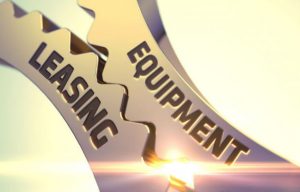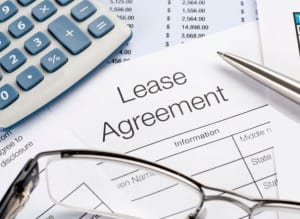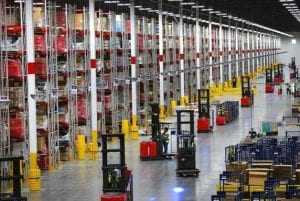As a Salesman for a Raymond Solutions and Support Center, I’m often asked by customers to  share my thoughts about material handling equipment (MHE) leasing. Not necessarily particulars about rates, or details specific to accounting, which is good since I’m not an accountant, but they want to know if other customers in their industry lease or purchase MHE. They ask about the types of leases available and how they work, and new lease standard and how that might affect them. And they inquire about custom leasing options. Let’s answer some of those questions.
share my thoughts about material handling equipment (MHE) leasing. Not necessarily particulars about rates, or details specific to accounting, which is good since I’m not an accountant, but they want to know if other customers in their industry lease or purchase MHE. They ask about the types of leases available and how they work, and new lease standard and how that might affect them. And they inquire about custom leasing options. Let’s answer some of those questions.
The big question
To lease or not to lease can only be answered by the accounting gurus at your company, or your  financial advisor, as each situation and financial strategy will vary. However, the obvious benefit of leasing is the retention of capital by the lessee. Typically, there is only a first and last months payment due upfront and the remaining amount is amortized over a set period, usually ranging from 12 to 72 months. This is an advantage shared by typical bank loans, but leases have the following benefits over bank loans:
financial advisor, as each situation and financial strategy will vary. However, the obvious benefit of leasing is the retention of capital by the lessee. Typically, there is only a first and last months payment due upfront and the remaining amount is amortized over a set period, usually ranging from 12 to 72 months. This is an advantage shared by typical bank loans, but leases have the following benefits over bank loans:
✔ Generally, faster approvals and less intrusive credit approval
✔ Able to include installation, freight, and other soft costs in lease
✔ Lower upfront costs (smaller down payment)
✔ Possibly tax benefits (new FASB rules in effect for 2020 may affect how these leases are recorded)
✔ Once a master lease is created, adding equipment is extremely quick and painless
Types of equipment leases
There are two common lease options utilized for MHE purchases, operating and capital. The difference lies in the end of lease options. Under the new rules, both obligations go on your balance sheet- so there’s no longer that advantage for operating leases.
Capital leases take the cost of the equipment, add an interest charge related to the time value of money and spread the equal monthly payments evenly over the term. At the end of the term, the lessee owns the equipment.
Operating leases assign residual value to the asset. At the end of an operating lease, the value attached to the equipment, based on current market conditions and estimated resale value, reduces the amount of the monthly payments. At the end of the lease term, the lessee typically has three choices –
- Purchase the equipment at the current fair market value
- Return the equipment in exchange for a new machine, and a new lease
- Continue leasing the equipment, at the same or re-negotiated monthly payment
Which lease is best for you?
Although I once again recommend you revert back to the financial gurus to answer this, my experience has been that most of my customers choose a capital lease as they expect the useful life of the equipment to go well beyond the end of the lease term.
The downside of this strategy is that they often end up with a machine with little to no market  value, and as maintenance costs rise, they often exceed the monthly lease rate of a new piece of equipment. That doesn’t include the downtime and frustration older equipment causes the operators, managers, and everyone up and down the supply chain.
value, and as maintenance costs rise, they often exceed the monthly lease rate of a new piece of equipment. That doesn’t include the downtime and frustration older equipment causes the operators, managers, and everyone up and down the supply chain.
Those who do utilize an operating lease typically replace the equipment at the end of the term. This guarantees they will always have reliable equipment that offers the latest advancements in technology and safety. They also typically run multiple shifts, adding long hours to the equipment which further presses the need for replacement at the end of the term.
Customized leasing options
And there also are variations to the above leases, companies like The Raymond Corporation can offer customized leasing solutions to fit most any customer’s specific need. Maybe you require smaller payments today but expect higher cash flow in the future. A step-up lease may work with payments that increase at a pre-determined schedule. Or maybe a balloon payment at the end of the term works better. Perhaps the equipment won’t generate revenue for the first three months. A deferred payment lease may be your best option. Whatever your need may be, there is likely a lease that will fit.
Before you hand out your cash, and empty the till, take a good look at available lease options ![]() from your local Raymond Solutions and Support Center. I guarantee there is a program that fits your need, and lets you hold onto your cash!
from your local Raymond Solutions and Support Center. I guarantee there is a program that fits your need, and lets you hold onto your cash!



Leave a Reply
You must be logged in to post a comment.